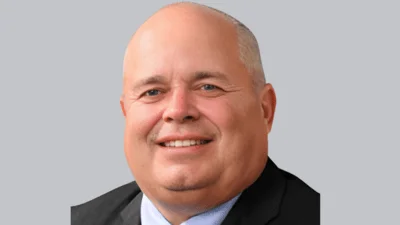OSF Saint Luke Medical Center recently issued the following announcement.
With 124 locations including 13 hospitals throughout Illinois and Michigan, it’s been difficult to monitor and track important metrics for nursing departments across OSF HealthCare. But it’s also necessary to continually improve the services the organization provides.
Data on operations, finance, performance, outcomes and safety were typically collected in numerous ways and in different locations, making it difficult to see the full picture of how nurses were delivering care throughout the organization. There also wasn’t an easy way to measure whether patient interventions were effecting change.
As a result, chief nursing officers (CNOs) worked with Healthcare Analytics, a part of OSF Innovation, to build a one-stop-shop where nurse managers and directors can easily see key metrics and make informed decisions to improve care. It also helps leaders identify those nurse supervisors who are using the data to engage staff and find solutions in care delivery.
Developing the nursing dashboard
Pulling in different types of data from multiple sources to build a dashboard isn’t easy. Healthcare Analytics has to take a number of variables into consideration, including whether data is being collected in a standardized manner and if the data source they are pulling from is reliable.
“Sometimes we have to go back to departments or divisions asking them to change the way they are gathering certain types of data,” said Dawn Tucker, director of Analytics Effectiveness for Healthcare Analytics. “In can be time-consuming, but is necessary to ensure we have good clean data to work with.”
In the case of the nursing dashboard, the working platform includes five tabs that work independently of one another since the data comes from multiple sources. This allows nurse leaders to view a number of key metrics without having to search multiple pages.
“We’ve been collecting this type of information for a while, said Lori Wiegand, chief nursing officer for OSF HealthCare. “But we have never been able to see it in totality as we can today. This is a much more active way to look at the care we are providing throughout the organization.”
The dashboard includes the following tabs:
Person-centered services: This allows leaders to gain insight into approved and posted nursing positions as well as a link to an explorer that shows turnover rates for the entire Ministry.
Patient experience: This tab includes survey data and gives decision-makers an idea of how nurses are impacting the patient experience.
Affordability and sustainability: This tracks nursing hours per patient day and provides data on whether facilities and departments are meeting their targets for nursing hours per patient day.
Bonus and overtime: This section shows how much overtime and incentive bonus pay that nursing departments and facilities are generating and gives leaders an idea of how the Clinical Resource Team (CRT) is being utilized throughout the organization.
Quality and safety: This tab includes a link to a dashboard tracking patient falls across the Ministry. This allows leadership to not only get a high-level overview of how well facilities are doing to prevent falls, but they can also take a deeper dive into types of falls, how severe they are and where they are taking place. The tool also shows management whether interventions to prevent falls are working.a
“The nursing dashboard not only allows us to see where our opportunities are across the organization, it also allows us to see where we have some bright stars who are implementing processes to make a difference for our patients,” said Kelly Nimtz-Rusch, vice president of Nursing and Clinical Education for OSF HealthCare. “We can use these nurse managers and charge nurses as examples for others to follow.”
Still more work to do
Original source can be found here.






 Alerts Sign-up
Alerts Sign-up